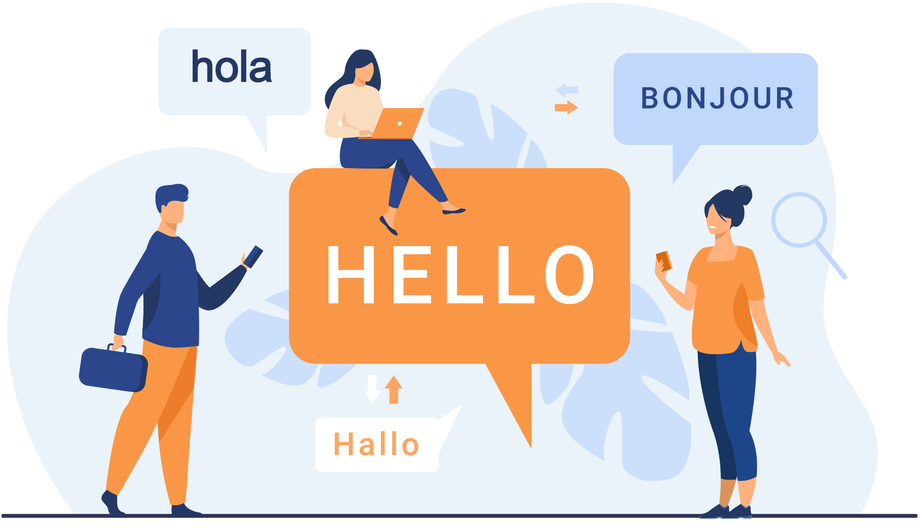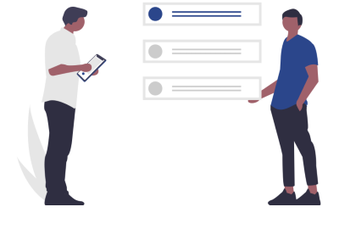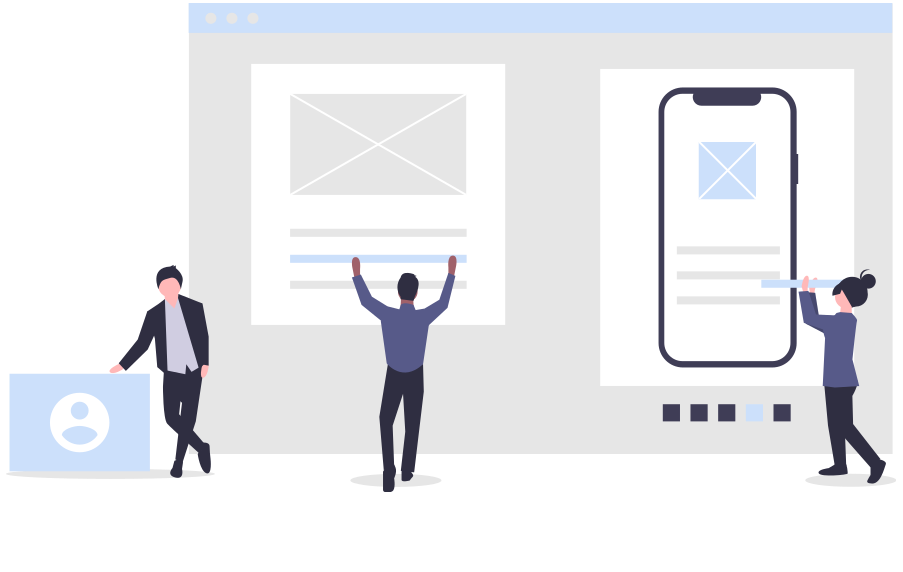
Are you organising a multilingual event?
English dominates multilingual events, yet it is the second language for most participants. When we give up our mother tongue, we lose accuracy, agility and confidence that can cause misunderstandings, refrain participation, or even create a conflict. A speaker might not reach her audience, an attendee could miss a decisive nuance, or a negotiator find himself in a weak position.
Using a common-denominator language reduces the efficiency of multilingual events, impoverishes the participants' experience, and often results in increased costs in the long term.
Use interpretation to boost your event

Interpretation improves the effectiveness of face-to-face and online multilingual meetings.
Interpretation bridges language and culture differences, enabling communication rich in meaning and cultural cues.
Interpretation removes obstacles, bringing the experience of multilingual events closer to those held in your own language.
Speakers can display their full register without any limitations, talk freely, and be as precise, funny, or eloquent as they decide.
Attendees can follow the message effortlessly and feel confident to engage in lively discussions.
And negotiators are on equal terms, regardless of their language skills.
Interpretation saves headaches, efforts, and costs. But, more fundamentally, interpretation is important because it makes communication between people possible.

I am a Spanish conference interpreter in Brussels

I am a freelance interpreter, bilingual in Spanish and German. I work in both languages, English, French, Portuguese, and Italian.
I work for international businesses and organisations, and the EU institutions.
Since 1999, I am an accredited freelance interpreter to the European Commission, and since 2000 to the European Parliament, and a monthly regular at their hearings and plenary sittings.
I do simultaneous, consecutive, whispered, bidule and remote interpretation.
Choose the type of interpretation that fits your needs
Simultaneous interpretation
Many partcipants + >2 languages = simultaneous interpretation.
Simultaneous interpretation is the most adequate format for large multilingual meetings, congresses or press conferences.
Yet it comes at cost. You need at least two interpreters per language, equipment (soundproof booths, consoles, microphones, headsets and cabling) and IT support.
I work together with a colleague in a booth from where we see the speakers. Attendees listen to our interpretation through headsets.
* Watch the multi-award-winning short film 'Susotázs' to get a better sense of simultaneous interpretation—and have a good laugh.


Consecutive interpretation
For short, two-language meetings, choose consecutive interpretation—for speeches, product presentations or negotiations.
The speaker and I take turns. I listen and take notes while he talks for 3-5 minutes to then interpret his words in the desired language. This process doubles the time of the event.
No infrastructure is required other than my pen and notepad.
Chuchotage
Chuchotage is best suited for when only one or two persons in a group need interpretation, or for one-to-one conversations.
I stand or sit very close to my client to interpret simultaneously in her ear.
Once in a while you get a glimpse of whispered interpreting when the evening news report about a meeting of two heads of state.


Bidule
Also called InfoPort system, bidule is the perfect alternative for groups visiting facilities or touring a city.
Members wear headsets to listen to the interpreted speech—which I deliver simultaneously.
* Conference interpreter Barry
Slaughter Olsen explains in this video the different modes of interpretation. Using the set-up
of a closed-door, bilateral meeting, the film shows the challenges that interpreters face and the resources we use.
Profit from remote interpreting (RSI)
Is it inconvenient, too costly, or as in current times, simply impossible for participants to meet in-person? That is when remote simultaneous interpreting (RSI) becomes the preferred option.
RSI is the solution for online events. Remote interpreting increases efficiency and saves time and money:
- RSI is compatible with standard software and hardware.
- The organisation of online events is simpler and faster. This gives you extra flexibility for preparing and arranging interpretation services.
- Participants and interpreters can join from anywhere in the world with the ease of a mouse click.
- RSI does away with travelling, transportation, and set-up costs; no need for event venues, plane tickets or IT equipment.
Most of the interpreting I have done in 2020 and 2021 has been RSI.

Benefit from thousands of hours of experience
In more than 20 years of experience, I have interpreted at all sorts of events: annual general meetings, conferences, factory visits, foundation councils, gala dinners, government delegations, marketing events, negotiations, openings, press conferences, product launches, sales trainings, seminars, tv interviews, webinars, and workshops.
I work for corporations from a wide range of fields, among others: agriculture, economics and finance, education and culture, film festivals, food industry, medicine and pharma, NGOs, politics, sports, tourism, transportation, and urbanism.
I also work for international institutions, like the European Commission, the European Parliament, the European Court of Justice, UNESCO, OSCE, and for the Spanish and German administrations and governments.









And from the quality of AIIC
I am a member of AIIC, the Intenational Association of Conference Interpreters. We are more than 3,100 interpreters present in over 100 countries. Many governments and all major international organisations, like the EU, UN, and NATO, employ AIIC interpreters for their multilingual events.
When you hire AIIC interpreters, you benefit from a global network and the highest ethical and professional standards.

Get in touch to discover how I can help you
